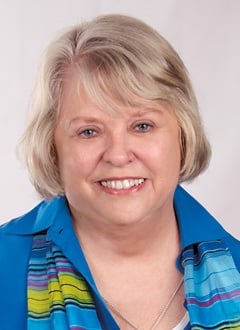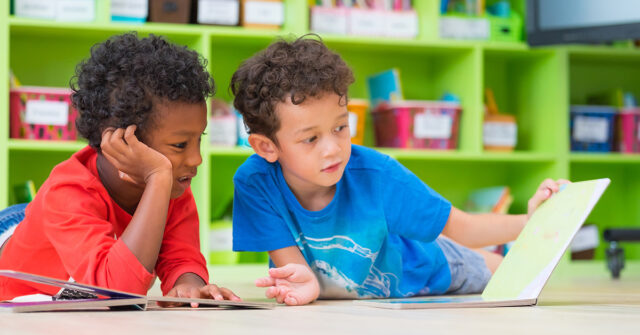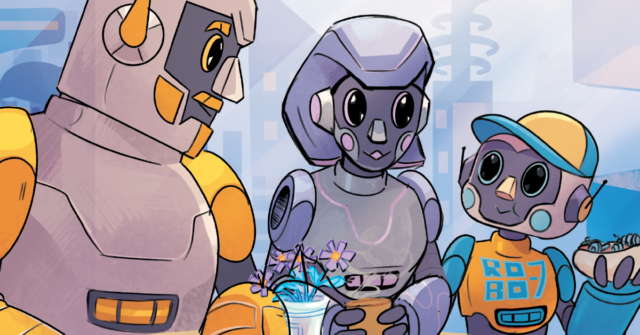
Recent research shows that punishing students who bully is not enough and that we must begin every child’s education by establishing relationship skills and building empathy among students. October is National Bullying Prevention Month and all month long on the Heinemann blog we’ve been sharing blogs, resources and articles from Heinemann authors Lester Laminack and Reba Wadsworth. In 2012, Lester and Reba co-authored the book Bullying Hurts.
Recent research shows that punishing students who bully is not enough and that we must begin every child’s education by establishing relationship skills and building empathy among students. October is National Bullying Prevention Month and all month long on the Heinemann blog we’ve been sharing blogs, resources and articles from Heinemann authors Lester Laminack and Reba Wadsworth. In 2012, Lester and Reba co-authored the book Bullying Hurts.
Bullying Hurts is not your same-old anti-bullying guide. Lester and Reba show how read alouds can be used as a powerful way to neutralize bullying behaviors and create community in the classroom. They also detail the Layers of Essential Understanding.
We’re breaking this podcast up in two parts, part one is with author Reba Wadsworth. We started our conversation on how to work towards a classroom of kindness, everyday.
For our blog series Bullying Hurts click here.
See below for the transcript of our conversation:
Reba: That is 1 of the things that I think is missing so much in education today. Our teachers are just being driven toward testing data to prove that they're doing what they need to be doing.
They launch into the academic part before they really start to build that community among the children. One of the ways that I think is the easiest thing is just the way we model and the way we, as the adults, treat each other as adults and treat the children. Do we treat them with kindness and respect?
An easy way to do that, to model it, is to do it through our read alouds. There are wonderful books out there now. Since we wrote the book, there's just been numerous outstanding books that teachers can use as a launching pad for the discussion that follows.
We don't have to label them and put them into 1 of the layers. Just to build that culture that children understand that bullying and trying to disrespect other people doesn't get us anywhere. We've got to build that culture from day 1 throughout the day as often as we can.
One of the things that's so detrimental is this system that so many teachers are required to use now. You may not been in classrooms lately to see this, but when teachers are required to look at negative behavior and by looking at the negative, we're going to see the negative. When a principal demands that you do that, it really makes it even more difficult for a teacher to build that culture of kindness.
Speaker 2: I want to go back a little bit. You mentioned read alouds. They are such an important part of your book, Bullying Hurts. Why are read alouds so vital to the process?
Reba: First of all, a read aloud, Lucy Calkins said, "The single most important thing that you can do in a day is to read aloud to your children." By doing that, you are showing them fluent language. You're exposing them to rich vocabulary and to story. If you pick your read aloud carefully, it does that plus it gives kids the language to talk about and to notice bullying, the situational kind of thing.
I was reading aloud last week to a group, a new book that had just come out about a little boy that was so envious of his best friend having a bike. He knew he couldn't afford one and how he went through.
He found a hundred dollar bill that a lady in the grocery store had dropped. He put his foot over it, because she walked on out of the store. He hoarded that hundred dollars even though his mother couldn't afford to buy extra food for supper.
That kind of behavior is a tempting human reaction. He wanted the bicycle. He knew he couldn't have one, but then he found the hundred dollar bill. That gives kids a platform to talk about envy, to talk about selfishness, to talk about being honest.
Of course, the little boy in the story did return the hundred dollars. It turned out that the lady that he returned the hundred dollars to did not have any money at all to buy food for her family. Of course, it gave that situation for children to talk even more.
When you're 9 and 10 and 5 and 6, those kind of things if you don't have the language and the vocabulary to talk about it, you have those anxious feelings inside.
Speaker 2: You also write about the layers of essential understanding. Can you explain more about that idea?
Reba: The layers are just a representation of the stages that you go through to get to bullying. We want children to recognize the fact that in this world we are all special. We are all unique. We all have something that we do well. We want to appreciate that. We don't have to put somebody else down to make ourselves look better. That's layer 1.
Then you move into layer 2, which talks about that even though we are all alike, there are some differences in us. Some of us like things that others don't like. Some of us walk differently. It progresses into the fact that there are many, many children who can't hear well, can't see well. We still have that human trait, that human characteristic that makes us more alike than the ones that make us different.
Then you move on into .... This is where the respect really starts. We're different, but yet we've got to understand that when we act on the differences, that reflects what we truly believe about humanity. They tie into each other.
For instance, if we go back to that second layer where there's some differences. In the third layer, if I react to a child who can't walk, or to a child who can't see and make fun of them, then that really shows you what I believe about myself and others.
Then we get into really where they bullying takes place. To feel powerful, I've got to make somebody else be diminished. The thing is we see this in adults. We see this among teachers. We see this among employees in a building where we all want to get ahead. We all want to be successful, but we don't want to do it on our own merit. We're afraid that if someone else looks really good, then that diminishes us.
Think about that through the eyes of a 5 or a 6 year old. That's where the teachers building that culture of kindness can offset a lot of that. They help kids see their uniqueness without putting somebody else down.
Of course, the very last layer, which is the heart we think, or we see it as that. We want to feel good about ourselves without letting somebody else influence that and put us down. Everyone of us has a little kid inside of us. It's just hard sometimes to overcome what society is throwing at us.
There is the richness of the layers. It's when we get to that point where we understand that we're unique. There are people who are a little bit different to us, but yet that doesn't take away from our uniqueness. Our belief in that tells us a lot about our character.
Speaker 2: The idea of taking on the issue of bullying, it's very daunting. When you talk to teachers and you're advising them, what's your advice for a teacher to not get overwhelmed at the idea of taking on bullying?
Reba: It's just a culture. It's just a part of the thinking. It's the way teachers interact with the kids. It's how we deal with them. It doesn't have to be.
Like this book, yes, it's got some wonderful lessons in it. If you read through it, and you let it become a part of your everyday thinking about how you interact with your kids, the teacher is absolutely essential to getting this culture started in the classroom.
One of the things when we started this book and we started doing the research and we looked at all these different policies that everybody had about zero tolerance and all that, that's good. That's all surface level. We've got to get down to the culture of what we're doing in our classroom. It doesn't depend on what the principal's doing, or the superintendent is doing.
Yes, they put some burdens on us. Like I was talking about about the system where you're looking at the negative behavior and your moving a clothespin up or, you're moving it down all day long. There's ways to lessen that blow.
One of the things that I discovered just recently is to lessen that, start .... I don't know whether you've read the book about have you filled a bucket lately? It's talking about how you look at the positive things all day long.
That's filling somebody's bucket. Once you become a bully, or you make fun of somebody in any way, or step over books that they dropped rather than helping them pick it, you're emptying their bucket.
You can empty an adult's bucket very quickly. Going through the lunch line and a little kid can be rude, or obstinate to one of the lunch room ladies. You make them see that they've got power. They're lessening that person's day by emptying a bucket.
That goes back to children's literature. There's just rich examples all around us that can help us help kids understand the element of bullying.
Speaker 2: You also write about strengthening the school and home relationship. Can you talk a little bit more about that?
Reba: So many children come to school. Their narrative has already been written by what they've gone through at home and what they go through when they walk in the front door of the school.
Let's say that they get out of the car and they've had a terrible morning. They walk in and the first adult they see doesn't have a smile, but gets on to them about slamming the door, or not wiping their shoes off. That starts that day for that child on a negative. It's hard for that teacher to overcome that.
We all know that the academic part, it's what we've got to get through. Teachers are losing their jobs, because the kids are not achieving what they need to achieve.
We've got to build on kids and infuse into all the adults in a school that they play a major role in the culture for that child and by working and building that bridge to parents.
So many parents, specially low socio-economic parents come to the school with a negative attitude. If you've read any of Ruby Payne's research about low socio-economic children, you understand that that culture is hard to overcome. It's hard to build a life from. It's hard to educate parents that you want that child to achieve.
In Ruby Payne's research, she says that most parents don't want the child to succeed above what they have achieved. They feel threatened by the school environment. That puts an extra burden on teachers and principals, and school personnel to build that bridge of a welcoming, friendly, accepting environment for the parents.
You want them to be the first line of support for their child. Parents want .... They're sending us the best they've got. We've got to understand that and work with them and work to understand.
Speaker 2: The book came out in 2012. What new resources since then are you and Lester sharing with educators today?
Reba: Pretty much the web sites that we shared in the book are still very valid. The major thing is the fact that the statistics have changed rapidly. All we have to do is to turn on the TV, or pull up Facebook to see bullying taking place in a much more aggressive and much more open way in just 4 years.
This election, oh my goodness. Does it offer perfect examples of bullying behavior on everybody's part. The more that comes out, the more we see .... We can flip to a certain page in our books and just read the behavior. You can see it.
I'm a huge football fan. I love my team, but I'm not going to put down your team because I want you to love it just as much as I love mine.
There's the adults setting the example in front of children. It's okay to bully about football. It's okay to bully about political beliefs. It's not okay when you walk into a classroom to bully. You're giving kids a mixed message.
I think that's one of the most .... This book is so powerful in the beginning of thinking of what bullying culture does to any social situation.
Speaker 2: Reba, this has been fantastic talking to you. Thank you so much for your time. Is there anything else you want to add that maybe we missed?
Reba: No. I just think this book was so timely. I thank Heinemann for recognizing the need for it. I just implore teachers to really think about what they do as role models for kids. I'm telling you our society needs it more right now than it needed it 4 years ago.



